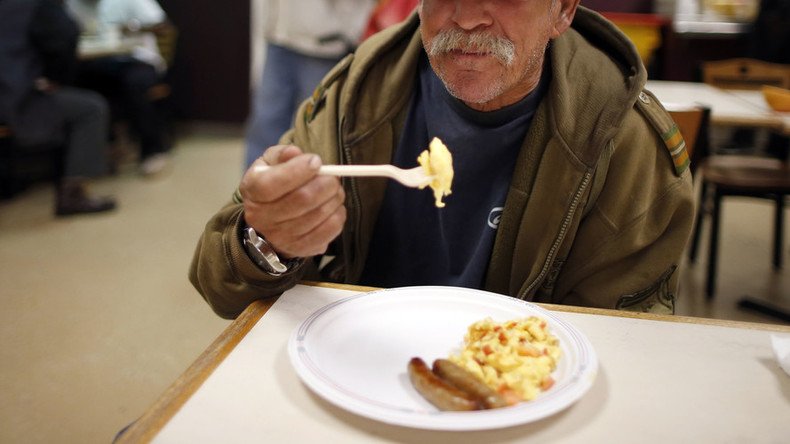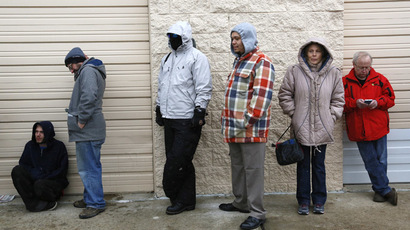Quarter of Britain’s poorest families going hungry, survey finds

Around 25 percent of low-income families in the UK regularly undereat because of insufficient funds, according to the first major survey into the levels of food insecurity in Britain.
The survey, conducted by the Food Standards Agency (FSA), a government agency tasked with protecting public health in relation to food, found that 8 percent of respondents are facing low or very low food security.
This means that roughly 4 million British adults regularly struggle to eat the sufficient amount of food.
Although the FSA did not elaborate on why some households are more at risk than others, independent studies found a positive link between the suspension of welfare benefits and growing food prices with the rising levels of food insecurity.
This is tacitly confirmed by the FSA survey, which finds a particularly high concentration of food-insecure households amongst the unemployed.
Over a third of all unemployed respondents had reduced their daily food intake or failed to eat altogether because of lack of money. Some 47 percent said they often worry their food supplies will run out before they receive more money.
A number of nutrition experts have called on the government to review the negative impact of austerity measures on the poorest members of society.
Rachel Loopstra, a senior nutrition lecturer at King’s College London, quoted by the Guardian, said: “These robust survey data confirm how serious the scale of the problem of people not having enough money for food to eat is in the UK, and are consistent with reports of increasing food bank usage.
“It is shocking that, at minimum, 17 percent of adults are worrying about their food supplies running out before they have enough money to buy more, and unacceptable that 8 percent of adults have had to eat less, experienced hunger, or at worse, gone whole days without eating because they lack money for food.”
Anna Taylor, the executive director of the Food Foundation think tank, said: “These data are truly shocking.
“To take so many British people off the breadline, the government must drive uptake of the Healthy Start program for young and low-income mothers, tackle gaps in food provision during school holidays and review our welfare policies to protect the diets of society’s most vulnerable.”
Campaigners have previously called on the government to regularly track levels of food insecurity in Britain, yet this request is consistently rejected by Downing Street.
The Scottish government, however, has recently decided to implement a program of food insecurity measures.














